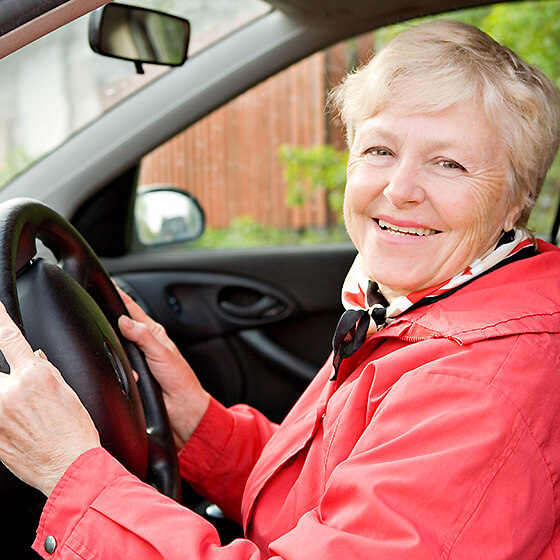Driving represents freedom for many drivers, especially for senior citizens. As seniors age, they may be trying to maintain their independence, and driving can be a great symbol of that freedom. For a senior struggling with their independence, driving may boost their confidence. However, driving can also become more difficult with age, so it is valuable to research adaptive auto devices that support your elderly loved one. There are a variety of adaptive devices that address the most common issues that elderly drivers experience.
Here are some examples of adaptive auto devices
Mirror Adaptors
Both sight and flexibility decline with age, which can make driving dangerous as their point of view may be hindered. Adaptive mirrors can maximize line of sight and minimize discomfort while driving. Large rear and side mirrors can improve visibility and reduce accidents. This accessible mirror will decrease body twisting and neck rotation which can minimize pain. This can also be achieved by a panoramic mirror which will broaden their point of view and help them see their surroundings and blind spots more effectively.
Safety Seats
For a senior, falls are one of the leading causes of injury and disability. Falls may occur while entering or exiting the car. Therefore, accessible safety devices to support seniors navigating their car is important. There are a variety of safety features that may suit your elderly loved one. It may be as simple as installing hand bars or leg lift straps so you can use upper body strength to support the transition out of the vehicle. Or it may be more effective to install a swivel seat that allows the driver to rotate their body to the side prior to exiting the vehicle which eases the ability to enter and exit the vehicle.
Extenders
As we age, it is common for our bodies to grow shorter, often losing 1-3 inches in height. This can hinder driving, especially if a car that previously fit perfectly now no longer fits. Adaptive device extenders can help. Pedal extenders can extend the length of the pedals and keep the senior from sitting too close to the steering wheel which can be dangerous if airbags deploy. It can also improve visibility and support their ability to respond during quick man oeuvres. Extenders also are available for seat belts. Seat belts save lives; however, seniors may be resistant to wearing seat belts if they are too small for their bodies, or painful to reach. By attaching a seatbelt extender, which can add 4-6 inches and allow for increased mobility. As well, key extenders reduce the stress of finger joints by providing more leverage for turning keys in locks and ignitions.
Driving safety can be the key to freedom, independence and confidence for many seniors, and adaptive auto devices can keep them on the road. Providing your elderly loved one with accessible resources can minimize the risk of dangerous driving and keep them safe. Accessibility is circumstantial and you will have to have an honest and compassionate conversation about what they are struggling with and what solutions are available to them. If your elderly loved one wants the freedom of driving but does not want to drive themselves, it may be valuable to look into personal care workers who can drive your elder on errands. This can keep them safe and allow them to still feel like they have their independence of choice.
We also recommend you check these related posts on family caregivers in our Home Care Services blog:

